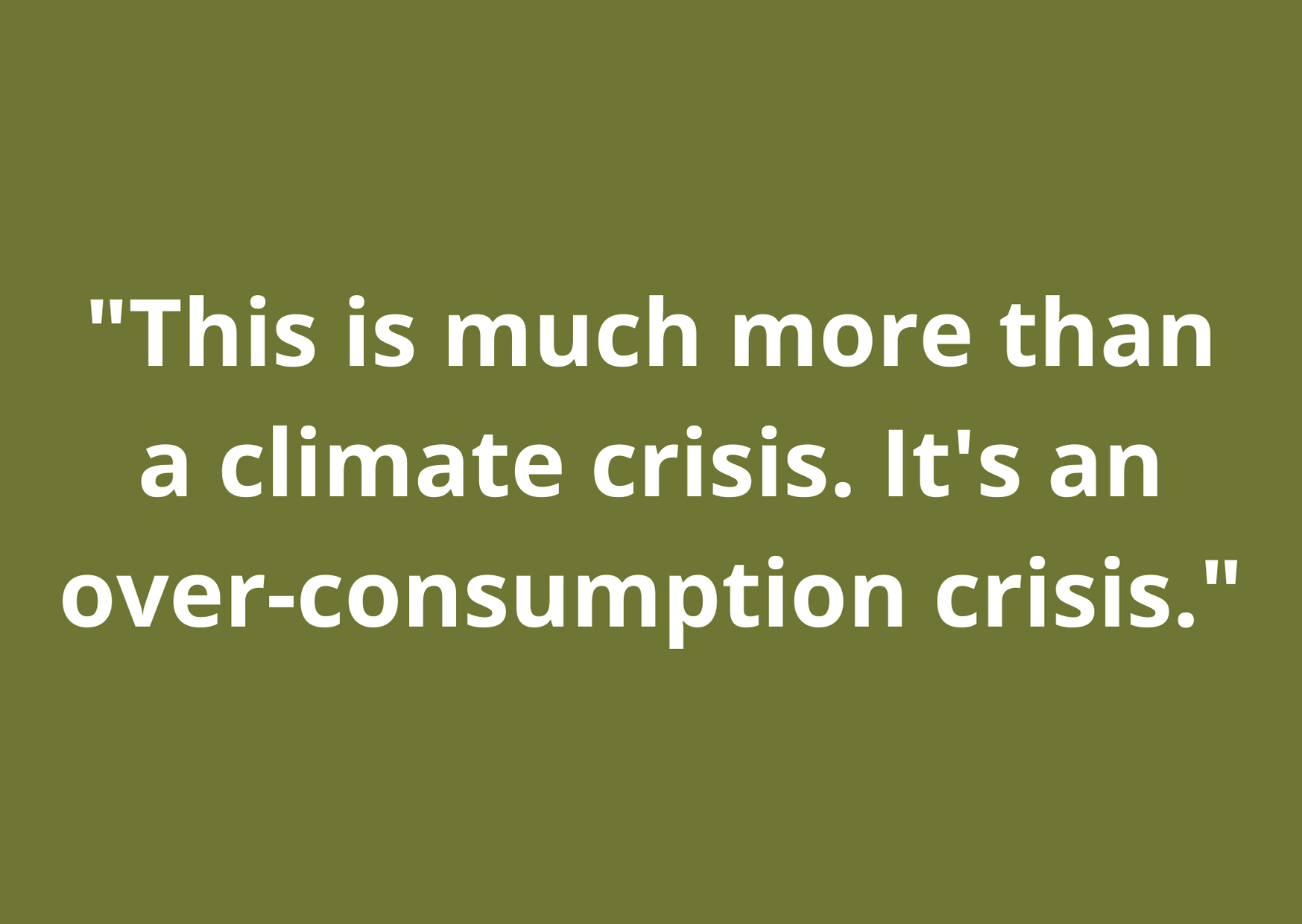Can we talk about nationalisation?
It hit me. We assume that nationalisation is taboo. That others are unlikely to share our viewpoint. And that’s exactly what happens with climate change. We choose not to talk about it, because we over-estimate how many people are more sceptical than we are. Is the same thing happening with nationalisation of oil?
Ten things to know about the climate
There are thousands of books, papers, news stories and theories about how to solve climate change. But what if that’s the problem? What if we’re overwhelmed? What if, instead, we simply settled for these ten facts? After all, for 99% of us, this is all we really need to know.
Why did Lush leave social?
Lush has left social media, apparently until Facebook et al do more to clean up their act. Should other ethical brands follow their lead? Or is there more to Lush’s decision than meets the eye - does it pass the sniff test? We look at what ethical brands can learn from the Lush social media story.
Are you a one channel pony?
It is one week until the Ethical Business Marketing course starts. And I potentially have a very big problem. The LinkedIn algorithm has taken the huff. My posts aren’t being seen. The number of views has crashed. No matter how much engagement I get in the first few views, no matter what I post? Tumbleweed. It’s a painful lesson.
Why marketing feels sleazy
There’s a notion that purpose-driven marketers use the same techniques as everyone else - just for brands that do good things. The reality isn’t that simple. Traditional marketing is designed to make you buy more stuff. Purpose-driven marketing is a different ball game. The goal posts have moved; the end result is different.
Imagine a world
Responding to the environmental crisis - to climate change, to plastic pollution, to the loss of wildlife - is framed as a challenge. It’s so much more. It’s an opportunity. A chance to do things differently, to do things better. It’s a time to reconnect - to family, to community, to the creative pastimes we yearn for.
Enough is enough
‘Consume less to save the planet’. It really is that simple. Tackling climate change and all our other environmental problems isn’t hard. We just need to consume less stuff. Here’s what that looks like in real life.
Nine messages that will make action happen
The Canadian heat dome was a turning point in public opinion on climate change. People are ready to listen, and ready to act. What we say - the messages we convey - is more important than ever. It’s the difference between action and apathy; hopelessness and a burning desire for change. We need to get this right.
We need to get better at talking about the environment
The heat dome over Canada was a tipping point in public opinion. People are ready for change, and ready to act. But for that to happen, we have to do things differently. And we have to learn to talk about the environmental problem differently. It’s time to learn from our mistakes, and to do things differently.
Why we need to stop talking about 1.5C
The heat dome across North America can be another “Oh no, how awful” moment. Or it can be the catalyst that people are crying out for: meaningful action. To achieve that, we need to face the truth. That the way we’re talking about the environmental crisis isn’t working. People don’t change for 1.5 degrees.
The heat dome is a tipping point
This week, Canada burned. It was a tipping point in international public opinion. Instead of saying “Our leaders have failed” people are asking “Our leaders have failed, so what can I do instead?” This article is a roadmap. A blueprint for learning from our mistakes and taking meaningful action.
The clarity of a consumption crisis
The story of a controversial oil executive who’s been appointed a climate champion by the UK government is the perfect illustration of why we need to reframe our environmental crises as symptoms of a single problem: over-consumption.
Climate change is the wrong problem
We need to stop talking about the climate crisis. Because we don’t just have a climate crisis. That’s one symptom of a bigger problem. We’re in the midst an over-consumption crisis. And we need to start calling it what it is, if we’re to have any chance of solving it.
The language of a crisis
Freedom fighters or insurgents? Patriots or rioters? A global pandemic or a little flu? The language we use matters. And, in the midst of a climate crisis, our language can influence attitudes, actions and behaviours.
Carbon offsetting: should you do it?
If we’re to achieve ‘Net zero’ then one thing is increasingly clear. Carbon offsetting is an essential part of the mix. Of course, it sounds brilliant. For those hard-to-remove emissions, then why not counteract their impact - by planting some trees, or finding another way to store or capture carbon? Unfortunately, life's not that simple.
The Tony’s Chocolonely story: a load of baloney?
There’s been a bit of a meltdown in ethical circles this week. Tony’s Chocolonely, the poster boy of ethical, slave-free chocolate has been unceremoniously dropped from the Slave Free Chocolate list. But is it really the story it seems to be? Here’s what ethical businesses need to learn from the chocolonely baloney.
Why we don’t use affiliate links
Why your trust is more important than a kickback from an affiliate. Read more about why we could make money from recommending the things we would have recommended anyway… but choose not.

















